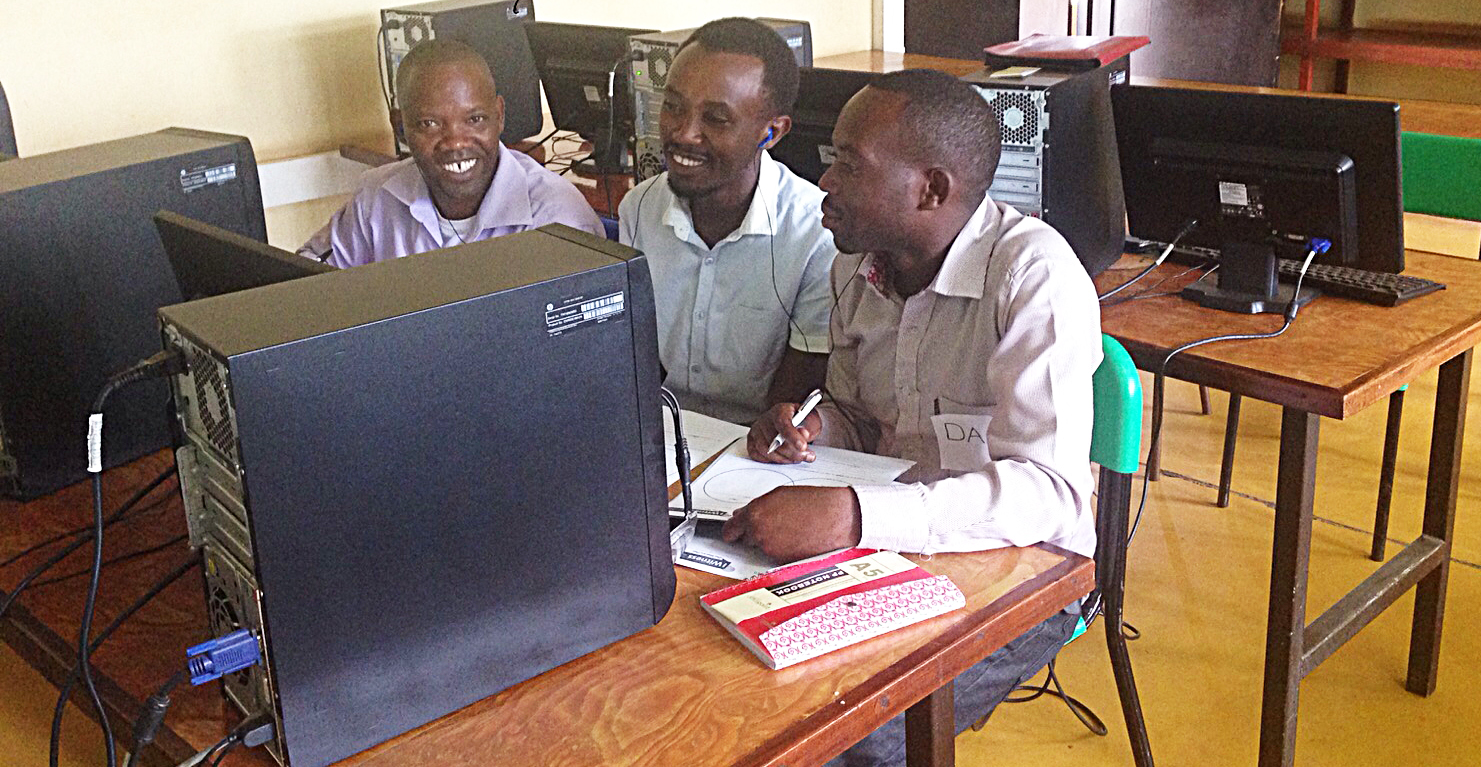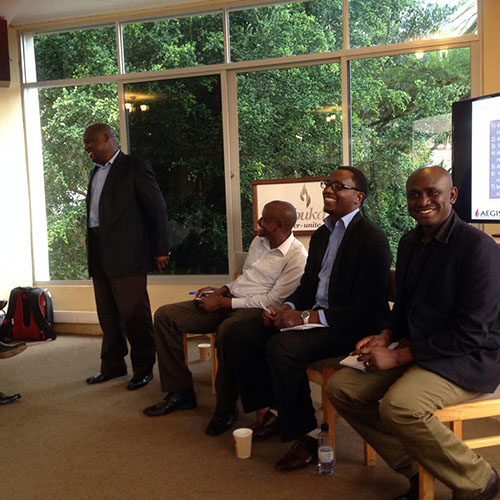Rwanda Peace Education Program Concludes, Measures Impact of USC Shoah Foundation in Rwanda


Educators in Rwanda share their thoughts on IWitness at Kigali Genocide Memorial
The education, community and peace-building Rwanda Peace Education Program (RPEP) has concluded after four years, and its partners have begun to evaluate the impact of USC Shoah Foundation’s role in the program, with positive results.
The Rwanda Peace Education Program (RPEP) is a 4-year collaborative effort between four local and international partners: Aegis Trust (lead partner); the Institute of Research and Dialogue for Peace (IRDP); Radio La Benevolencija (RLB); and the USC Shoah Foundation - Institute for Visual History Education. The overall aim of RPEP is the promotion of social cohesion, positive values (such as pluralism and personal responsibility), empathy, critical thinking and action in order to build a more peaceful society in Rwanda.
USC Shoah Foundation contributed to RPEP in the areas of teacher training on IWitness and capacity-strengthening for Aegis Trust archival staff to preserve testimony for historical and educational use in the Genocide Archive of Rwanda (GAR).
@USCShoahFdn had a positive effect on the 3-year Rwanda Peace Education Program.
Teachers who attended IWitness training sessions hosted by USC Shoah Foundation as part of RPEP praised the program for providing them with the content and means to teach difficult subjects and impart new skills to their students.
Students and teachers also cited testimony as one of the most important and meaningful aspects of peace education. Survivors’ stories were very useful in persuading others to listen to and absorb peace education messages.
Over the course of the RPEP program, USC Shoah Foundation responded to the teachers’ concerns that the technology and internet available in their schools was not sufficient for using IWitness in their classrooms. USC Shoah Foundation developed several offline options for IWitness, such as lessons that can be downloaded ahead of time and printed out on paper, to address the Rwandan teachers’ needs.
The four Aegis Trust staff who USC Shoah Foundation trained on recording and archiving testimony for GAR also reported that the training they received improved the quality of their archiving practices. They saw a reduction in the time it takes to interview, record, index and archive material.
Though RPEP has ended, its impact should continue to be felt in schools across the country thanks to efforts to incorporate elements of peace education into the Rwandan national curriculum. RPEP’s Pedagogical Committee met with the Rwandan Education Board and the Ministry of Education during the national curriculum review to encourage education officials to consult with peace education experts as they develop new curriculum. By the end of RPEP, the Rwandan Education Board and Aegis Trust signed a memorandum of understanding to work together on developing national peace education curriculum and content.